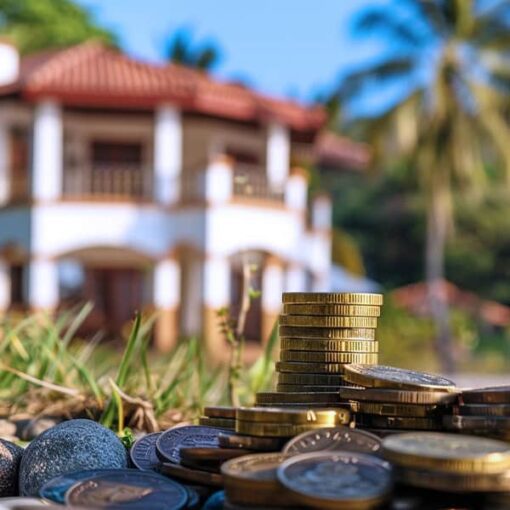Along with ‘Where am I going to live?’ and ‘How am I going to learn Spanish?’, ‘How am I going to get around?’ is one of the most basic questions that needs to be answered if you are going to successfully live in Costa Rica. Perhaps the circumstances of your life allow you to buy a moto or ride the bus.
If they do, maybe those modes of transportation are functional and stress free, I wouldn’t know, but I doubt it. You’ll have to find another source of information for how all that works because my life situation in Costa Rica has always required car ownership. The tale of my car ownership experience in Costa Rica is a cautionary one.
Upon arrival in our new country around twelve years ago, my wife and I took the advice of her new employers that it was probably a good idea to buy a car in San Jose, before we settled into our new lives at the beach in Guanacaste. So we ended up at a used car dealership called ‘Los Gemelos’ where we spent a very confusing day buying a car while having to repeat our conversations with the owner of the dealership over and over again.
It turned out ‘los gemelos’ means ‘the twins’ and we were talking to two different dudes the whole time. We bought a shockingly expensive, old, black SUV from the twins and proceeded to drive it to the beach. The excitement this vehicle brought into our lives included the back window exploding not once, but twice, the brakes going out while driving down a volcano, and the necessity of keeping a strong flashlight in the glovebox because if I drove it at night, my wife had to hang out of the passenger side window shining the light because the headlights were too dim.
Our next vehicle was a shockingly expensive, old, white SUV that we bought from a surfer-lady who was giving up the dream and moving back to the States. This vehicle worked great, for about 4 months. After the honeymoon period, everything slowly started to fall apart. One of the back passenger windows exploded and was replaced with a tinted one, the only tinted window on the car. The battery exploded. The AC died.
Then slowly but surely all of the windows stopped working which allowed for zero airflow causing the car to slowly heat like an oven while you drove it. The finishing touch was when my wife cooked the entire engine while driving home from Christmas shopping because she thought she’d make it home even though the temperature gauge was ‘a little high.’
At this point we decided to finally consider my dad’s advice. While listening to us whine about our various car explosions over the years, he said that we should probably invest in a new car because in the long run it would be cheaper.
We had always taken that advice in the same manner that most kids take advice from their parents, by ignoring it. After several years of vehicular devastation, we finally listened and you won’t believe this, he was right. We bought the tiniest, cheapest new car available at the time and, wouldn’t you know it, new cars have far fewer problems than old SUVs.
We’ve spent the last several years grinding that poor little car to a pulp, but I must admit my dad gave us sound advice. Over that time our family grew, and our jobs required us to get a second vehicle. Thinking we would save some money and learning absolutely nothing from our past mistakes, we bought an expensive, old, red SUV.
I won’t bother listing all of the problems that vehicle experienced but they were plentiful and severe enough to cause us to sell it. Afterwards, we got the financing together to get a new pickup for me to drive deep into the mountains all over this tiny country for my wildlife monitoring projects.
So, there you have it, a cautionary tale. If you move to Costa Rica and require a vehicle, I hope you have the finances for a shiny new one. Otherwise, prepare yourself for an expensive, hot, costly road punctuated with several exploding windows.
About the Author
Vincent Losasso, founder of Guanacaste Wildlife Monitoring, is a biologist who works with camera traps throughout Costa Rica. Learn more about his projects on facebook or instagram. You can also email him at: vincent@guanacastewildlifemonitoring.com
Source link
Vincent Losasso


